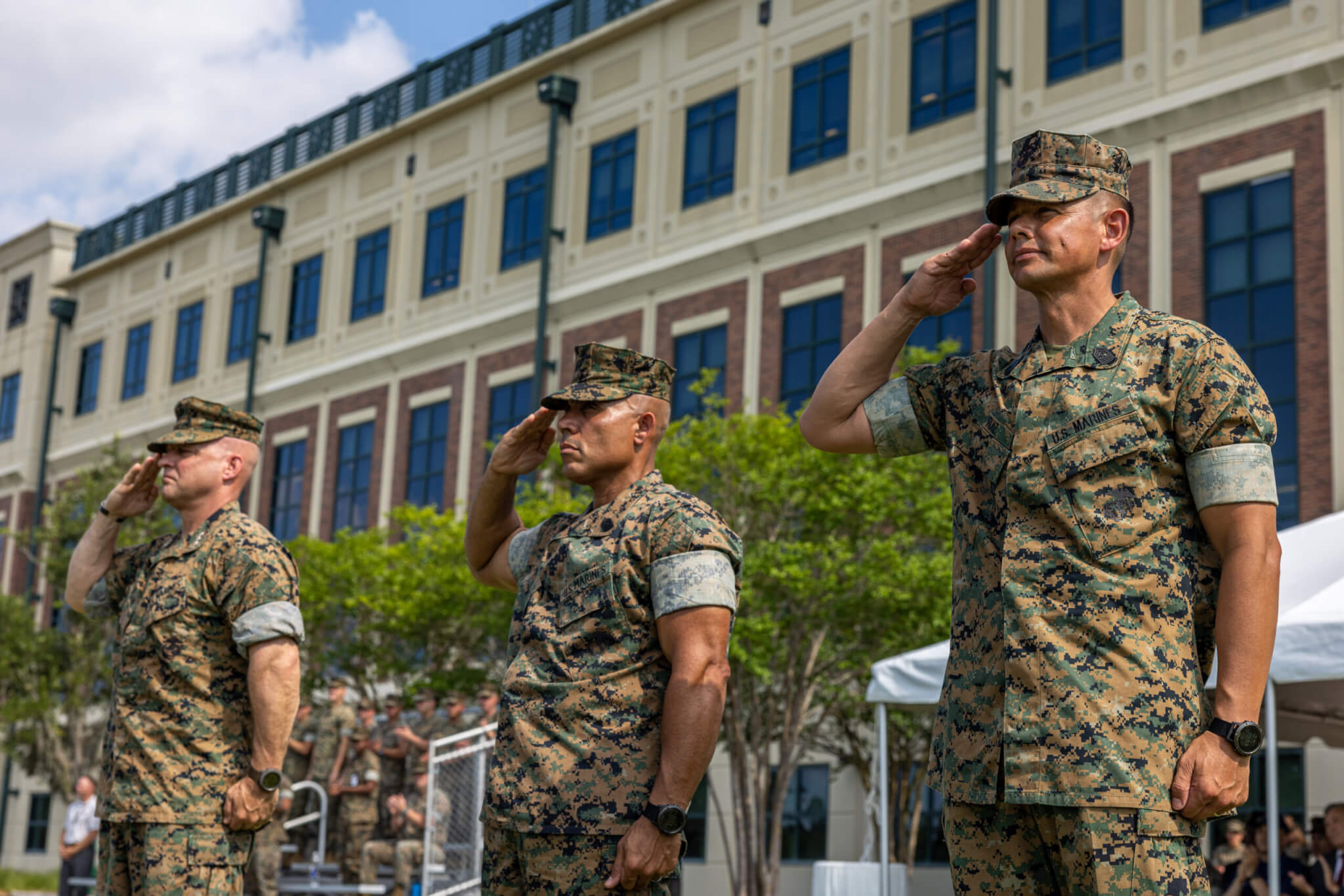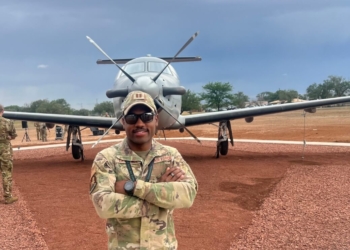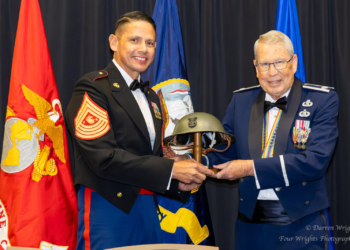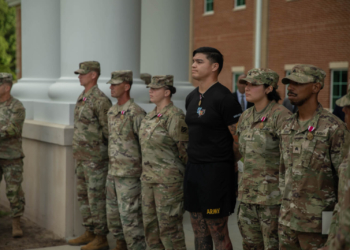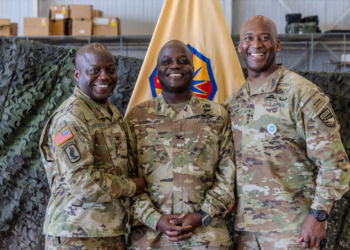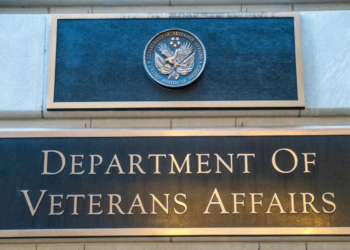Sgt. Maj. Carlos Ruiz never served in the Marine Corps Reserve, but jokingly hoped he would be confused for doing just that.
“I wanted to be accused of being a reservist,” Ruiz said in a one-on-one conversation with Reserve + National Guard Magazine before his appointment as the 20th Sergeant Major of the Marine Corps. “I really tried to understand. Technically, I’m not one. But I wanted to really dive into what the world was like.”
Since February 2021, Ruiz has served as the Marine Corps Forces Reserve sergeant major and that May took on all responsibilities of Marine Corps Forces South, becoming the command senior enlisted leader for MARFORRES and MARFORSOUTH.
“You can continue to serve your community. You can continue to serve your nation in a different capacity,” Ruiz said, “and then in return, you can continue to work on yourself and be a better Marine and that in turn, maybe end up being better father, better brother, better spouse, whatever.”
For nearly 20 years, Ruiz said, he knew the reserve component but “never really talked about” what Marines could do after active-duty service.
“I would only focus on the Marines inside my formation because they were the ones that were going to go forward,” he said. “And if you were closing in on the end of your contract, then it was time for you to prepare to go.”
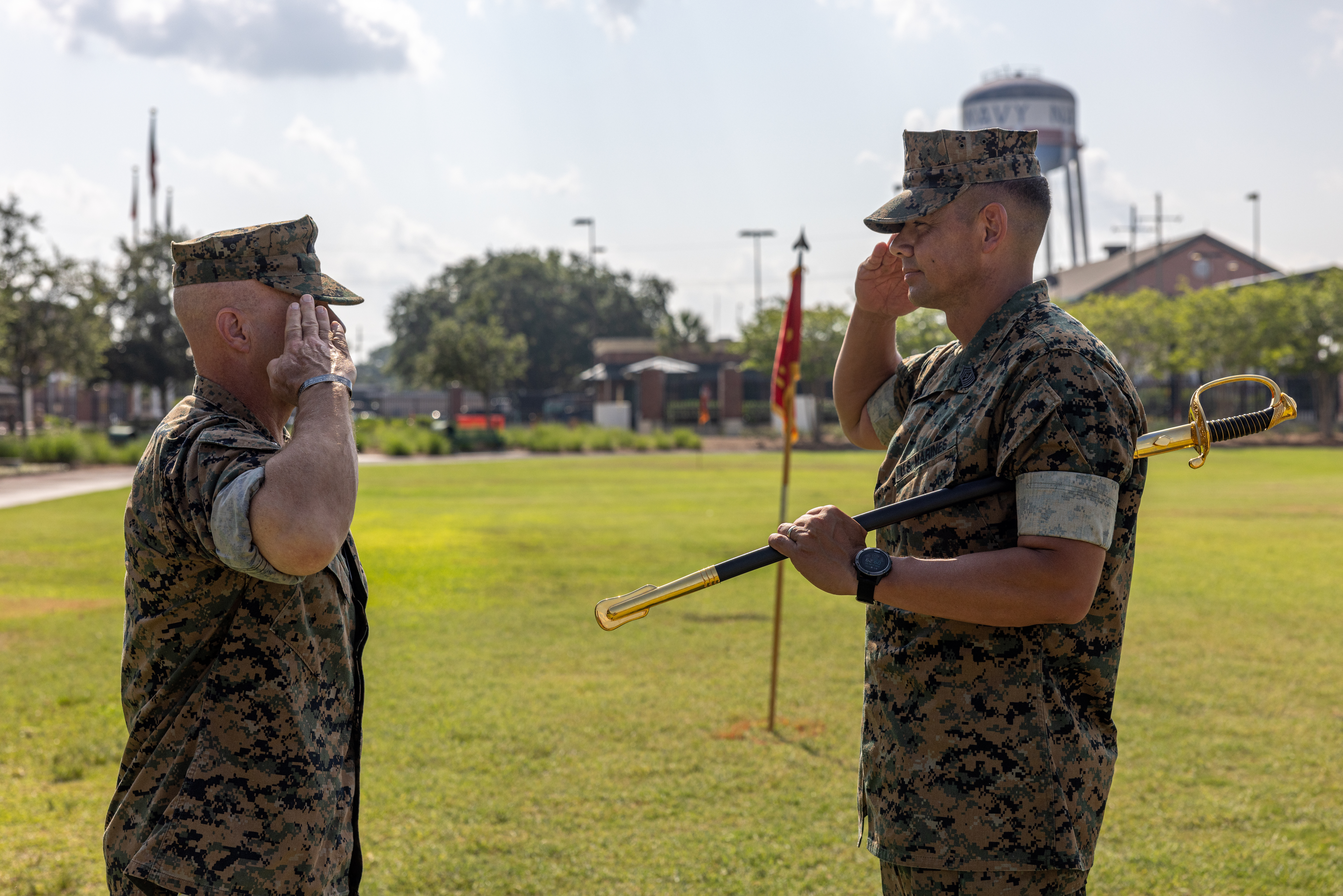
Looking back, Ruiz said that not discussing the option to transition to the reserves was a missed opportunity.
“So that was the first 20 years and the last eight years, seven years, I’ve been trying to make up for that by communicating to the active component as often as clearly as I can about being [in the] reserve component,” Ruiz said. “… But it is important for them to understand there’s this other group of people who are no less dedicated just because they’re not on active duty. And they bring a completely different skillset to help everyone.”
In June, the Marine Corps announced Ruiz as the 20th Sergeant Major of the Marine Corps. He will assume his new appointment on Aug. 10.
Becoming a Marine
Ruiz came to the United States from Mexico at 11 years old and attended high school in Buckeye, Arizona, where he saw a military recruiter. He said there was a family history of service – his uncles were in the Army during the Vietnam War – and he also knew that being in a small town, the military was an opportunity “being opened” for him. The Sonora, Mexico, native enlisted in November 1993 and graduated from recruit training at Marine Corps Recruit Depot San Diego, California, in January 1994.
“I was too young to understand what I was really doing, but I knew enough that it was something different and it was an opportunity to figure out what I wanted to do with myself,” Ruiz said. “So I took it and I joined, and I joined as a warehouse clerk.”
RELATED: Annual Marine rotation testament to ‘robust defense cooperation’ between US, Australia
From there, he worked his way up to gunnery sergeant, at which time he became a U.S. citizen.
“My father had become a citizen, and I thought that at some point I would return to Mexico,” Ruiz said. “Then when he got his citizenship, then my mother, my sister also came to the U.S. a couple of years after that. They would end up earning residency and becoming a citizen. So all of them beat me to citizenship.
“I was trying to figure out what I would do, and then the Marine Corps was changing. All the services were changing that you needed to have a clearance. And in order to have clearance, you needed to be a citizen. And therefore, I applied, and it was the coolest thing.”
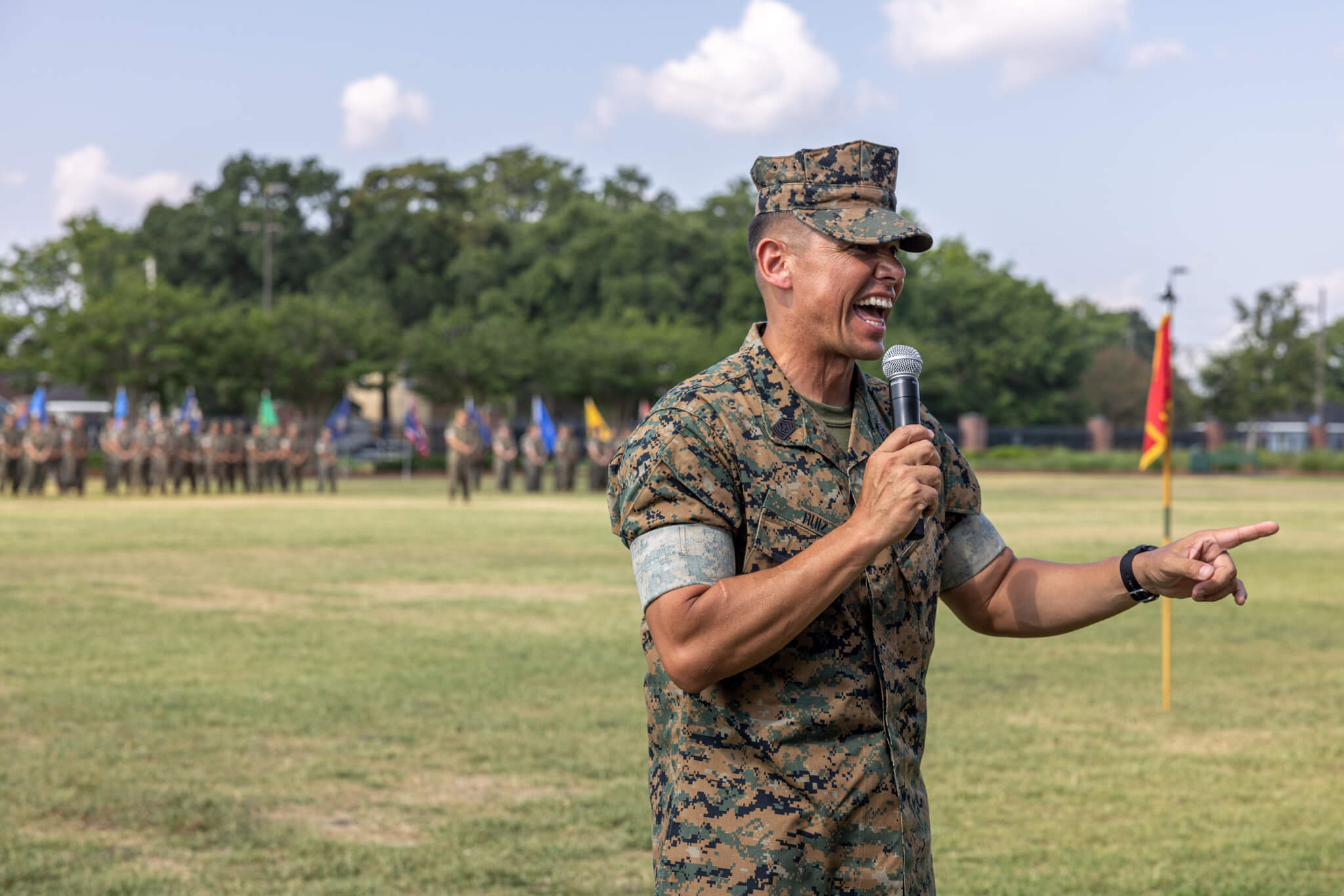
His career also includes stints as a recruiter and drill instructor, unknowingly providing him with leadership skills that he puts into effect to this day.
“What did I learn from recruiting duty? I learned attention to detail, I learned how to deal with rejection, I learned about effort … and then what I learned as a drill instructor – intensity, discipline, endurance and then both duties there was something about, that was common to both which was people. And what they thought they did not want but what they ended up needing.”
MARFORRES to Sergeant Major of the Marine Corps
The selection as the next Sergeant Major of the Marine Corps hasn’t hit Ruiz just yet. After the rush of congratulatory emails and texts died down, he said that all he could think about was doubling down and tightening up on everything he was doing before the selection.
“Not because I wasn’t before, but because I feel this sense of responsibility,” he said. “It’s an opportunity … I want to be as prepared as possible.”
Ruiz said his time with MARFORRES was “eye-opening” and showed a “completely different side” of the Marine Corps.
Before MARFORRES, he served with the 4th Marine Logistics Group and had a general officer who was employed at Microsoft. Ruiz said that’s when he found out that one weekend a month, two weeks a year is “not ever really the case” for the reserves.
“They’re always involved, right? Always connected with the Marine Corps, it’s never really just one weekend a month,” Ruiz said. “And I think that was my first front row seat. It was a beautiful thing to see the talent that’s inside those organizations.”
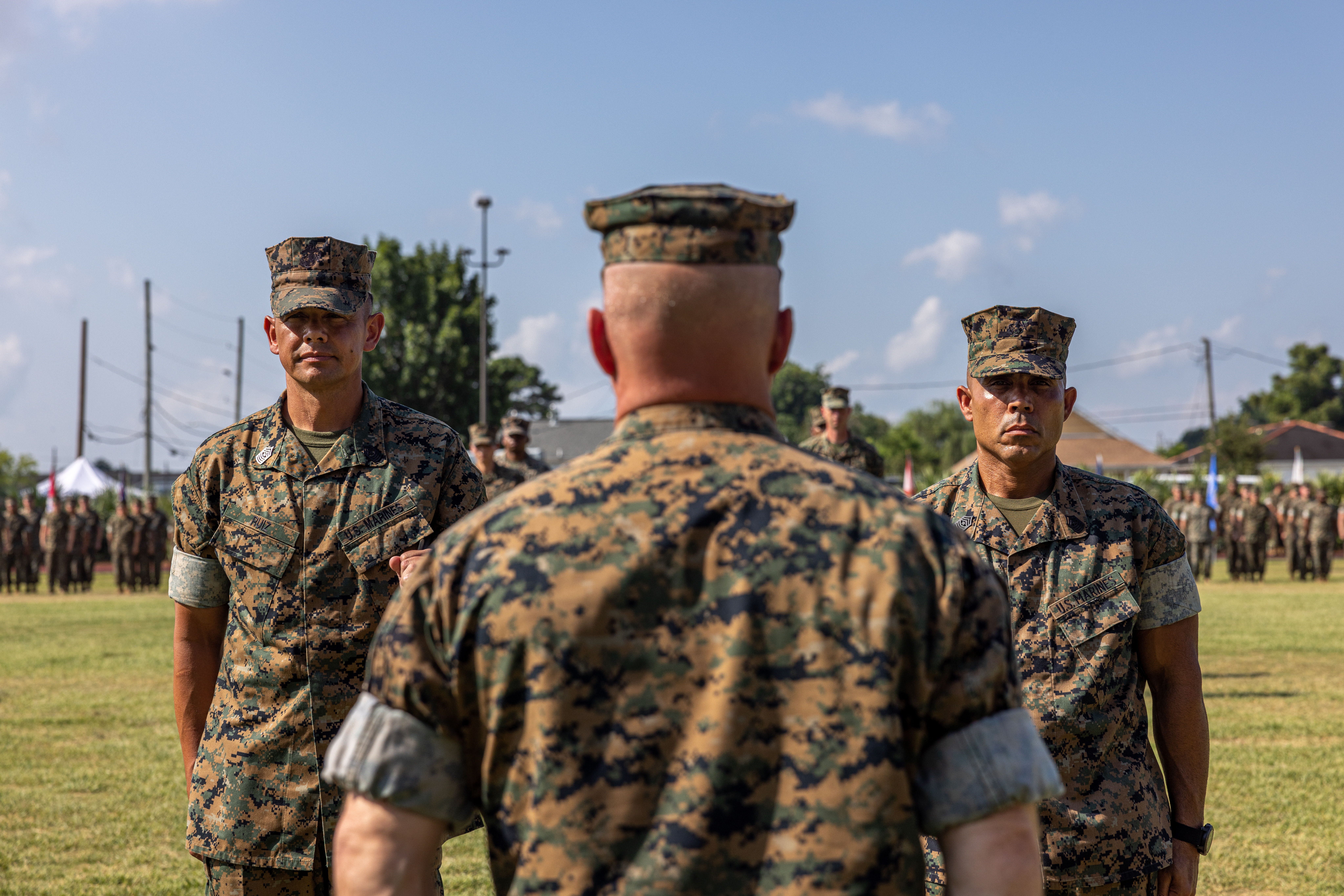
Now, he’s focused on the “entire institution” from policies and programs to education, training and what it means to be a Marine.
“It’s brief, after brief after brief and I love it,” Ruiz said.
But those years immersed in reserve culture has afforded him an advantage in leading the total force.
“I’m able to speak more freely, more confidently about what the total force really means,” Ruiz said.
Going forward, Ruiz said he thinks the Marine Corps will have an opportunity to “continue to advocate for what’s needed to win the next fight.”
“And I think what you’ll see is an acceleration of all things force employment, force development, design, whatever you want to call it — in acceleration of change without losing who we are,” Ruiz said. “What will not change is how we look at people and I think that’s important. And I think for me, there will be a lot of focus on connecting with people and families and veterans and ensuring that we all understand that the Marine Corps is successful because it comes from a place of discipline.”
Read comments

